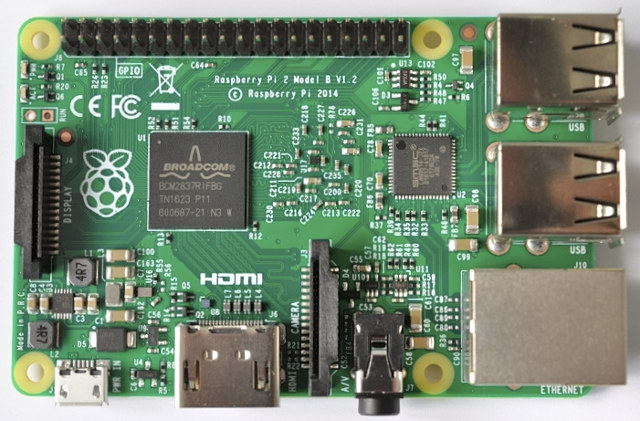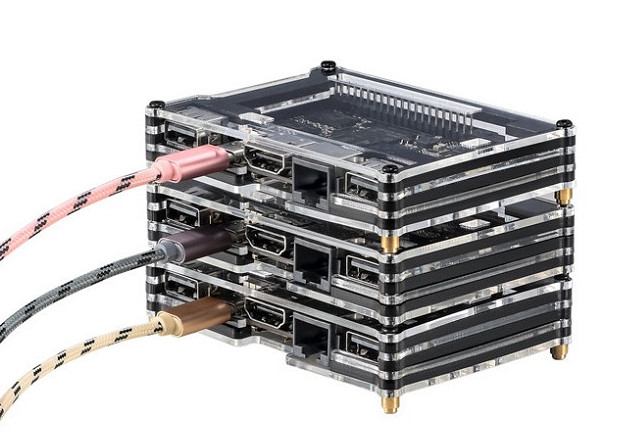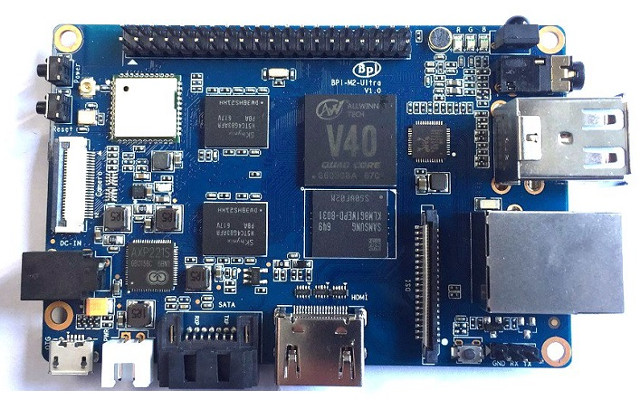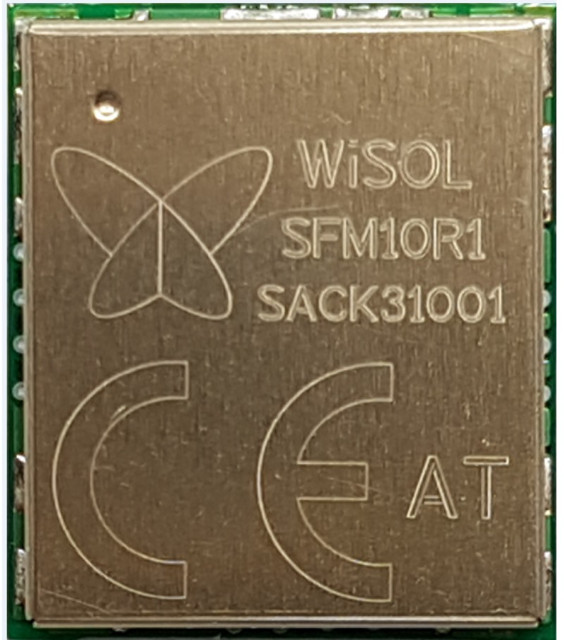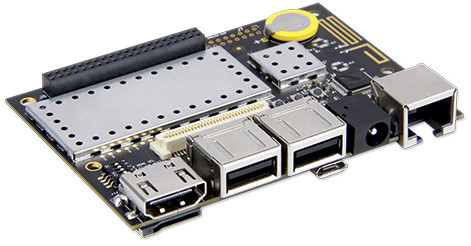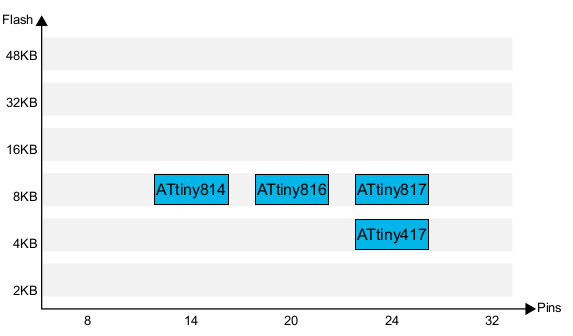With the launch of Raspberry Pi 3 based on Broadcom BCM2837 quad core Cortex A53 processor earlier this year, sales of Raspberry Pi 2 boards have suffering meaning the demand for Broadcom BCM2836 quad core Cortex A7 processor has also been reduced, and it appears the Raspberry Pi foundation has now launched Raspberry Pi 2 V1.2 with the faster BCM2837 processor. The new Raspberry Pi 2 v1.2 runs BCM2837 CPU cores up to 900 MHz, instead of 1.2 GHz on RPi 3, and includes 1 GB RAM. The main difference with Raspberry Pi 3 is the lack of the WiFi and Bluetooth module, which may also prevent some UART issues if you want to access the serial console or use an add-on board with UART. Since both boards cost the same ($35), most people should probably stick with Raspberry Pi 3, unless you’d rather not have any wireless module on […]
A Closer Look at Ingenu RPMA Alternative to LoRa or Sigfox LPWAN Standards & RPMA Development Kit
I’ve recently started to write a bit more about long range LPWAN standards for IoT applications, especially LoRa and Sigfox, as commercial networks are being launched, and relatively low cost hardware platforms are being introduced to the market. There are also other highly expected standards such as Weightless and LTE Cat M that will bring more competition to the market. Ingenu RPMA (Random Phase Multiple Access) is another available standard that’s been in deployment for a while, and based on an earlier comparison of long range LPWAN standards, it comes with long range, supports up to 384,000 nodes per “sector”, operates in the unlicensed 2.4 GHz ISM band, and offers high combined uplink and downlink bandwidth than competitors. Ingenu recently contacted me and provided some more details and information about their technology and development kit. One of the documents includes an “independent analysis completed by ABI Research, Inc.” comparing features […]
$49 Dashbot Car Dashboard Assistant is Powered by C.H.I.P Pro Allwinner GR8 Module (Crowdfunding)
Most companies specializing in development boards may sell a few accessories for their boards, but usually leave product design to their customers. Next Thing Co. does that too, but the company also produces some products like PocketCHIP portable Linux computer & retro game console, and more recently Dashbot, a voice controller assistant for your car’s dashboard powered by CHIP Pro module. Dashbot hardware specifications: CPU Module – CHIP Pro with Allwinner GR8 ARM Cortex A8 processor @ 1.0 GHz, 512MB NAND flash, 256 DDR3 RAM, 802.11 b/g/n WiFi, Bluetooth 4.2 External Storage – micro SD slot Display – Red LED display Audio – 32-bit audio DSP for beamforming & noise suppression; fairfield audio pre-processor with 24-bit ADC; high fidelity MEMS microphone array (106 dB dynamic range) USB – 1x USB host port Power Supply – 5V via USB port or 12V via power port (aka cigarette lighter) + backup LiFePo4 […]
Khadas Vim Amlogic S905X Android and Linux Development Board Sells for $50 and Up
Last summer I wrote about Shenzhen Tomato TVI development board powered by Amlogic S905X processor, and at the time the company focused on business to business customers, but the board is now sold as Khadas Vim through GearBest with 2 GB RAM, 8 or 16 GB flash, and price starting at $49.99 including shipping. Khadas Vim and Vim Pro boards’ specifications: SoC – Amlogic S905X quad core ARM Cortex-A53 @ up to 1.5 GHz with penta-core Mali-450MP GPU System Memory – 2 GB DDR3 Storage Vim – 8 GB eMMC flash + micro SD slot Vim Pro – 16 GB eMMC flash + micro SD slot Video & Audio Output – HDMI 2.0a up to 4K @ 60 Hz Connectivity Vim – Fast Ethernet port, 802.11 b/g/n WiFi and Bluetooth 4.0 (Ampak AP6212 module) with IPEX connector Vim Pro – Fast Ethernet port, dual band 802.11 b/g/n/ac WiFi and Bluetooth […]
Banana Pi M2 Ultra Allwinner R40 Development Board with SATA & GbE Sells for $46
Allwinner A10 and A20 processors have been quite popular in the past since they could handle Fast or Gigabit Ethernet and SATA natively, included decent multimedia capabilities, and were found in low-cost hardware such as Cubieboard 2 or MeLE A1000. Since then we’ve had a few boards with SATA using newer and faster processors without SATA IP, meaning it was usually implemented using a USB 2.0 to SATA bridge leading to mediocre to average performance depending on the implementation and selected bridge. Allwinner R40 is the successor of Allwinner R20 with a faster quad-core Cortex A7 processor, but keeping Gigabit Ethernet, SATA, and most features of its predecessor. The good news is that Banana Pi has now launched the promised M2 Ultra development board based on the new processor for $45.80 + shipping on Aliexpress (Total for me: $48.35). Banana Pi M2 Ultra specifications: SoC – Allwinner R40 quad-core ARM […]
$2 Wisol SFM10R1 & SFM10R2 Sigfox Modules and Evaluation Board
LoRa appears to be one of the most popular long range lower power WAN standards, at least based on the number of hobbyist boards coming to market, but hardware is not exactly cheap with modules such as Microchip RN2483 & RN2903 LoRa modules selling a little over $10, and development board such as LoPy normally going for at least $35. If large scale IoT is ever going to take off, prices will have to go lower, and AFAIK we are still waiting for the promised sub $2 Weightless chips. But if Elettronica In tweet is to be believed some Sigfox modules made by Korean company Wisol are selling for just $2, likely in larger quantities. WiSOL SFM10R1 is made with RCZ1 (Radio Configuration Zone 1 – ETSI – Europe), while SFM10R2 module is made for RCZ2 ((Radio Configuration Zone 2 – FCC – North America). SFM10R1 key features and specifications: […]
Geniatech Developer Board IV Powered by Qualcomm Snapdragon 410 Features Ethernet, RTC, and More
Geniatech is better known for their set-top boxes, and the company also offer developer board as well as custom designs for system-on-modules based on Amlogic and Qualcomm processor. Their latest board dubbed Developer Board IV looks fairly similar to 96boards compliant Dragonboard 410c board with its Snapdragon 410 processor but adds an Ethernet port, and an RTC battery. Developer Board 4 specifications: SoC – Qualcomm Snapdragon 410 (APQ8016) quad-core ARM Cortex A53 processor @ 1.2 GHz with Adreno 306 GPU System Memory – 1 or 2 GB LPDDR3 @ 533MHz Storage – 8 or 16 GB eMMC 5.0 flash + micro SD 3.0 (UHS-I) slot Video Output – HDMI 1.3 up to 1080p @ 30 Hz, 4-lane MIPI-DSI up to 720p60 or 1080p30 for optional (touchscreen) display Connectivity – 10/100M Ethernet, Integrated 802.11 b/g/n, Bluetooth 4.1, GPS with on-board antenna USB – 2x USB 2.0 host ports, 1x micro USB […]
Microchip Atmel ATtiny417/814/816/817 tinyAVR MCUs Include Core Independent Peripherals (CIPs)
Microchip’s latest Atmel tinyAVR MCUs combine Atmel 8-bit AVR core with CIPS (Core Independent Peripherals) normally found in the company’s PIC MCUs. Since Atmel’s purchase by Microchip, I believe this is the first time the company leverages features from both MCU families. The four new ATtiny MCUs come with 4 to 8 KB flash, and up to 24 pins: ATtiny417 – 8-bit Atmel AVR MCU with 4KB Flash, 256 bytes SRAM, 128 bytes EEPROM, 20MHz/20 MIPS, two 16-bit timer/counters, one 12-bit timer/counter, RTC, USART, SPI, Two-wire Interface (I2C), 10-bit ADC, 8-bit DAC, analog comparator, accurate internal oscillators and multiple calibrated voltage references, Custom Logic, 10-bytes unique ID, and 24 pins ATtiny814 – Same as above but with 8KB flash, 512 bytes SRAM, Peripheral Touch Controll (PTC), and 14 pins ATtiny816 – Same key features as ATtiny814 but with a 20-pin package with more I/Os ATtiny817 – Same key features as […]


